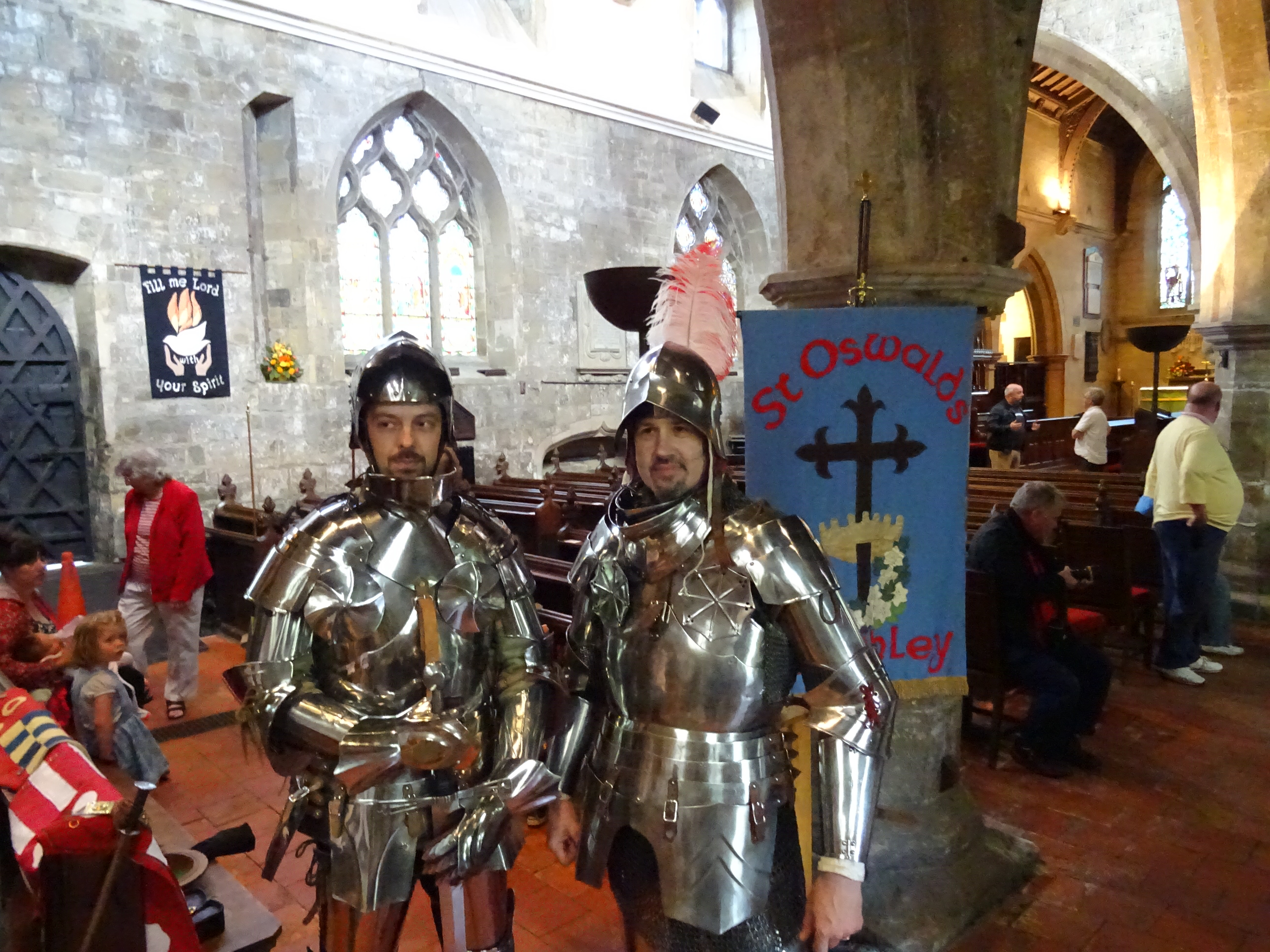Cecelia, one of the daughters of the young Sir Robert Waterton had married into the Welles family of Lincolnshire – her husband Sir Lionel Welles was later to be killed in 1461 at the battle of Towton where the White Rose of Rouen and the Ragged Staff won the day. He fell at the battle of Towton, fought on Palm Sunday, March 29th 1461 known locally as Palmsunday Field.
It was said that from thirty to forty thousand Englishmen were left dead upon the field. It is alleged that the body of Lord Welles was brought to Methley concealed in a sack and buried at St Oswald’s, this to avoid his head being separated from his body and impaled on a spear to be placed at the Micklegate entrance to the city of York. It is not recorded how many Methley sons may have lost their lives or indeed fought in the battle which surely some of them would have taken part, along with the Lord of the Manor.
Stories abounded in the village of his exploits at previous battles and skirmishes, and so they should. No mere baronial hanger on was our man. His import was noted having been a deputy governor of all Ireland, in addition to having witnessed the death at the stake of Joan of Arc at Rouen in 1431. His mission there, was to observe and report back to the king (Henry VI) that the Maid of Orleans had been accounted for.
Lord Welles was up in support of the house of Lancaster in what was to become known later as the Wars of the Roses, his life had filled Methley with stories of the battles and engagements. He remained loyal to the losing side, loyal as others changed despite the fact that his father and grandfather had been pro-active Yorkists.
Methley recognised the 550th anniversary of the battle of Towton when on 29th March 2011 St Oswald’s church incorporated prayers for the dead of this immense and bloody battle at their mid weekly communion service.
Source : Thoresby, The History of Methley
That 30 years war took the life of his son the daring Richard Welles who could not make his peace with King Edward IV, as with Robert Welles a wild son who would skirmish in vain with the Kings forces and both were to suffer the loss of their heads.
Last of the Lords Welles, came John who reconciled himself to the king. He was the uncle of Henry Tudor and led an uprising against Richard III, John escaped to Brittany and joined his nephew. He was present at Rennes Cathedral at Christmas 1484 when Henry Tudor promised to marry Elizabeth of York. John landed at Milford Haven with Henry Tudor in August 1485 and was at the Battle of Bosworth. After Henry was crowned and married to Elizabeth of York, John and her sister Cecily were married around 1487 when he was created a Viscount.
On his death the influence of the Welles’ was gone, in 1488 an act of partition instructed that the old Waterton estate be shared by :- Thomas Lawrence, Sir Christopher Willoughby, Sir Robert Tempest who received parcels of land in Methley including Dunford House, and finally Sir Robert Dymoke who received the Manors of Methley, Woodhall, Hazel House and the greater part of the village.